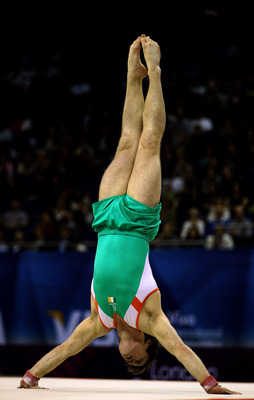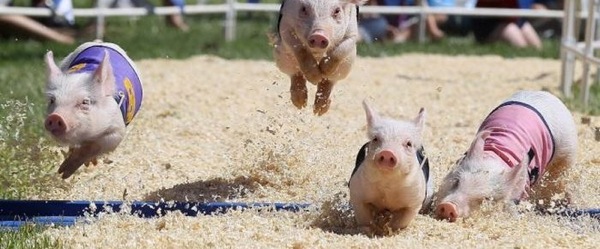Last week’s Olympics post focused on having fun with the Games as a family. But the world’s biggest competition can show us more than just humanity’s highest jumpers and fastest swimmers. In the midst of the gold-medal frenzy, the Olympics give us plenty of material for helping kids to understand the importance of losing.
Losing is a touchy subject at my house. My four-year-old daughter refuses to play a game unless she is guaranteed to win. She will only concede that something was a competition after she’s won it. Anytime she loses, she vehemently denies that the game ever happened.
Besides ruining the fun for everybody else, the inability to admit defeat reflects a big heart problem. I should know – I was a sore loser for the better part of my first 30 years. And in hindsight I can see that my worship of winning was an obscene display of pride. I also see that it played out in me spiritually as self-righteousness and legalism.
In a world that glorifies winners, teaching our kids to lose well is one way to prime their hearts for the Gospel. In order to cry out for a Savior, they must be able to admit weakness and need. In order to commit to Him, they must learn to lose their own lives. In order to know the power of Jesus in them, they must allow their hearts to be conquered by Him.
Here’s how I think the Olympics can help: It is often easier to embrace a truth when it’s illustrated in someone else’s life rather than our own. When our pride is not engaged, we can see more clearly. Since the Olympics produce far more losses than wins, our family is using a couple of illustrations from the Games to address the truth about losing. I hope these suggestions will help spark some creative conversations between you and your own little people.
(Note: In our household, this looks more like casual conversation than a formal discussion. You know what works best for your family.)
- Read the Olympic Creed: “The most important thing in the Olympic Games is not to win but to take part, just as the most important thing in life is not the triumph, but the struggle. The essential thing is not to have conquered, but to have fought well.” Ask some questions like:
-

Ian Walton/Getty Images Talk about an athlete who did not win but who fought well. This story about Irish gymnast Kieran Behan is a great example.
- Find an example of an Olympian who did not lose well. I’m not naming any names, but a simple Google search should turn up a story. From the 2010 Vancouver Olympics. In men’s figure skating.
- Not every champion is a winner. Read about Goliath, the Philistine “champion,” in 1 Samuel 17.
1. Was Goliath a true champion? Why or why not?
2. Why was a shepherd boy able to defeat a giant? What made David so strong?
.
- Memorize “loser” Scriptures as a family. There are tons of great ones, but here are a few favorites:
- Let your kids choose someone in your family, church, or community who is a lovely loser (as in Jason Gray’s song “Blessed Be”). Send an encouraging card and homemade medal to them and congratulate them on running the race like a true champion.
- Dear Daughter: On Outrage and its Remedy - June 20, 2022
- Rodents, Romans, and Chiaroscuro:Why We Love The Tale of Despereaux - August 28, 2019
- Rodents, Romans, and Chiaroscuro:Why We Love The Tale of Despereaux - November 15, 2017

Author Ginger Plowman describes this kind of teaching as “training in non-conflict times” (see her great little book called “Don’t Make Me Count to Three”). It really does help our kids to see what is going on in their hearts before they are thoroughly stuck in their rut again! Thanks for applying it to the Olympics, Alyssa!